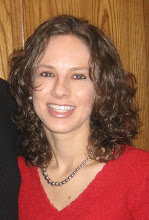Today I am higlighting a very knowledgeable public relations practitioner, John Wagner. I met John in 2002 after graduating from the University of Houston, and I believe he is someone we all can learn from as we strive to be at the top in our field. In our interview below, John speaks about PR agency experience and how you know if it's right for you, as well as gives his thoughts on public relations, the profession and how technology affects our profession.
As principal of Wagner Communications, John helps companies of all sizes communicate more effectively with key audiences. Prior to founding his own firm, Wagner was senior vice president and general manager of the PR group at Bates Southwest Advertising & Public Relations, where he managed all day-to-day client activities for one of Houston’s largest communications firms.
While at Bates Southwest, he also developed and led the agency’s media training course, and personally taught more than 50 executives how to communicate more effectively with various audiences. He is also an experienced corporate writer and editor, and has won more than 30 major awards for his work, including two prestigious Gold Quills from the International Association of Business Communicators (IABC).
John has a bachelor’s degree in journalism from Texas A&M University. He is an active member of the PTA at Settlers Way Elementary in Sugar Land, and often volunteers at the school, most recently tutoring second-graders in reading.
And now...My interview with John:
Kelly: John, given your extensive background in public relations and communications, what aspect of your career have you enjoyed the most so far, and why?
John: The best part of my career has been the people I’ve worked with, without a doubt. I’ve had the good fortune of working with some great folks through the years, and I’ve been part of some really cool teams that managed to do good work while having fun. Most of my friends today are former coworkers. Not sure what that says about me … maybe I should get out more. :)
The other aspect of my career that I’ve enjoyed is the opportunity to learn about a lot of different businesses and industries. I’m a naturally curious person and I love the challenge of learning new things. When you work for an agency, you’re always being challenged. One day you’re working on a mobile phone account, the next day you’re learning everything there is to know about quartz countertops, and the next you’re trying to understand the intricacies of liquefied natural gas. And on it goes. If you don’t like that kind of variety, agency work isn’t for you.
Today, as principal of Wagner Communications, I have the added benefit of being my own boss, and being in control of my own future. I have a lot more freedom and flexibility in terms of the work I do, the clients I have, the way I operate, etc. It’s great. I feel very fortunate.
Kelly: Because you focus on messaging, where do you think companies, both small and large, go wrong in their messaging and communications with internal and external publics?
John: It’s a two-part gap, really – content and consistency.
The first issue is that corporate messaging is often too sanitized to be useful to people. Executives and even many PR people are comfortable with corporate-speak, but it really inhibits true communication. It’s not real, and the public is savvy enough today to recognize it – even as many corporate people continue to try and hide behind jargon and fancy phrasing.
Companies want to control the message, but that has never been possible and it’s becoming even more of a pipe dream today. The reality is that the conversation belongs to the consumer, and the businesses that come to understand that fact will be successful. Those that don’t will struggle. I firmly believe that.
The other issue is that companies don’t communicate enough. Businesses of all sizes should constantly be looking for ways to reach out and engage the people who are important to them, whether it’s employees, customers, prospects, the community -- really, anyone who is interested in the products, services or operations of the company. It’s not about issuing news releases … it’s about finding ways to create meaningful conversations between people. And that involves listening, too.
I always tell clients that communications is a process, not a one-time effort. It takes time and energy. And you can’t stop.
Kelly: can you share with us your thoughts on the PR practitioner being placed in the role as the “conscience” of an organization?
John: I think it makes perfect sense. The PR professional has the proper skill set and understanding of the brand, the marketplace, the audiences … without the competing pressures that other departments face to make sales quotas or keep expenses low or what have you. It’s a tough role to play, there’s no doubt. I think we’d all like to believe that we could stand up to a strong-willed executive and challenge improper behavior or change the company’s direction. The reality is that the communicator’s power only goes so far.
That’s why the best combination is a CEO who understands the importance of PR and a strong PR pro to advise him or her. The communicator can be the conscience to influence the CEO, and the chief executive has the authority and power to change policy. Without that kind of leadership, the role of the PR group as change agent or conscience is diminished. I think you saw that play out in many of the recent corporate scandals.
I also believe that we are entering a time and place where transparency is going to play much larger role in the public’s perception of companies – and in their choices of who they do business with. Consumers are increasingly interested in whether companies are “doing the right thing” and operating appropriately. And smart businesses are responding by being more open. As PR pros, we need to encourage and nurture that movement toward transparency. It’s as simple as using plain language in news releases and as complex as investing in corporate citizenship reporting.
Kelly: John, for those who want to get a seat at the management table, what advice do you offer?
John: Well, I worked for a wise and capable CEO once who told me that he never worried about his next job … wherever he was, he put all his efforts into doing the best job he could. As a result, he was promoted through the ranks and eventually made it to the top spot.
That’s pretty good advice for some folks, I guess. But I also think that it helps young people to visualize the future and have a long-term objective to work toward. So my advice would be first, master your craft – specifically, writing and communicating – because without those skills you won’t be perceived as a top performer.
Then, I believe it’s important to become a businessperson in addition to being a PR pro. That is, you must learn how businesses make money, how executives think and plan and react, how markets work, what consumers want and need, and so on. You need to read – a lot. Wall Street Journal. Business Week. Blogs like On Message from Wagner Communications. :)
I also believe you have to be a sponge. Learn to observe and mimic the people you respect, and to recognize the warning signs of people who don’t progress. Learn everything you can about every aspect of your business. Ask questions. Listen more than you talk.
Finally, you have to earn respect. In the agency business, it’s easy to become a backstabber or complainer. It’s the nature of the business in some ways. Avoid that at all costs. Learn to be a team player. Do what you say you’ll do. Be trustworthy.
When you combine your skills with your knowledge of business and the respect you’ve earned, you’ll suddenly find you’re a leader. And people are looking to you for advice, for help, for answers, for counsel. You’ll have earned your seat at the table.
Kelly: How do you believe technology has affected the PR and communications industry and are practitioners keeping up, in your opinion?
John: I think the biggest change is how technology is affecting the audiences we are trying to reach, to be honest. The world is a different place than it was 10 years ago, that’s for sure. And it will be even more different in another 10 years. People don’t need the Houston Chronicle … they can read the New York Times online. They don’t need local radio … they can listen to their iPods. They don’t watch TV news. They care more about what their friends are saying than what some PR person or politician is trying to sell them. They don’t want to be marketed to … they want to discover products and services on their own.
There’s no such thing as mass media, that’s for sure. Everything and everyone is a niche. It’s not enough today to send out a news release or create a 30-second ad. In fact, in many cases, those are the least effective ways of communicating today.
And really, I don’t think the communications industry is aware of the massive changes that have occurred, to be honest. They just don’t get it yet. It’s still business as usual at many agencies, for example.
It’s not just about new tools that have been created. It’s about the very nature of what “corporate communications” means. Companies on the leading edge – and there aren’t many – are doing things radically different than the rest of the world. The communication comes from within the organization – employees talking, via blogs or podcasts or what have you – to the world, putting a human face on the company. The CEO answers his own e-mail. The company involves consumers in every aspect of its business, from design to marketing.
It’s people-to-people communication versus the old, top-down, corporate-control style. In that environment, PR functions behind the scenes, facilitating the communication but not trying to control or drive it.
Here’s another example. We’re seeing people create rogue ads for products they are passionate about. They have the technology to create and distribute media around the world, quickly and inexpensively. Who controls that? Who’s in charge? The consumer is.
The same goes for blogs. You wouldn’t believe the number of hits my blog gets from people who are searching for information on companies … search engines drive them to my site because I’ve written about the companies they are researching. I’m just a small-time blogger but I can influence a lot of people with what I write. Multiply that by 10 million, 12 million blogs and what do you have?
The consumer is in charge. And most PR people have no clue because they are spending eight hours a day or more trying to get a hit on the 6 p.m. news. I’m not trying to be critical, just being honest about what I see.
The good news is that PR pros are quick studies, and they can – and will – catch up in a heartbeat. So I’m very positive about the future of our profession. I think our work will be radically different in 10 years, but I believe the changes are for the best. We’re moving from an era of obfuscation and control to one of transparency and real conversations. That’s a very good thing.
And there we have it - wise words from a wise practitioner. Be sure to read
John's blog daily!




